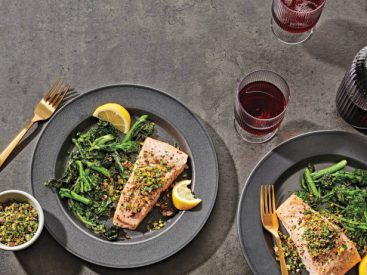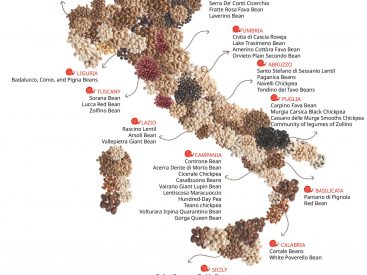Aika Levins’ Japanese/Middle Eastern barbecue of (clockwise from left) glazed chicken skewers, smacked cucumber and radish salad on tahini, and sesame and seaweed flatbreads. Japan meets the Middle East in this fusion trio of chicken kebab in oyster sauce, flatbreads flecked with seaweed and sesame, and smacked cucumber on […]
Delicious!
Delicious!



